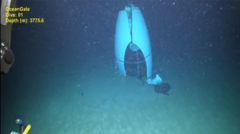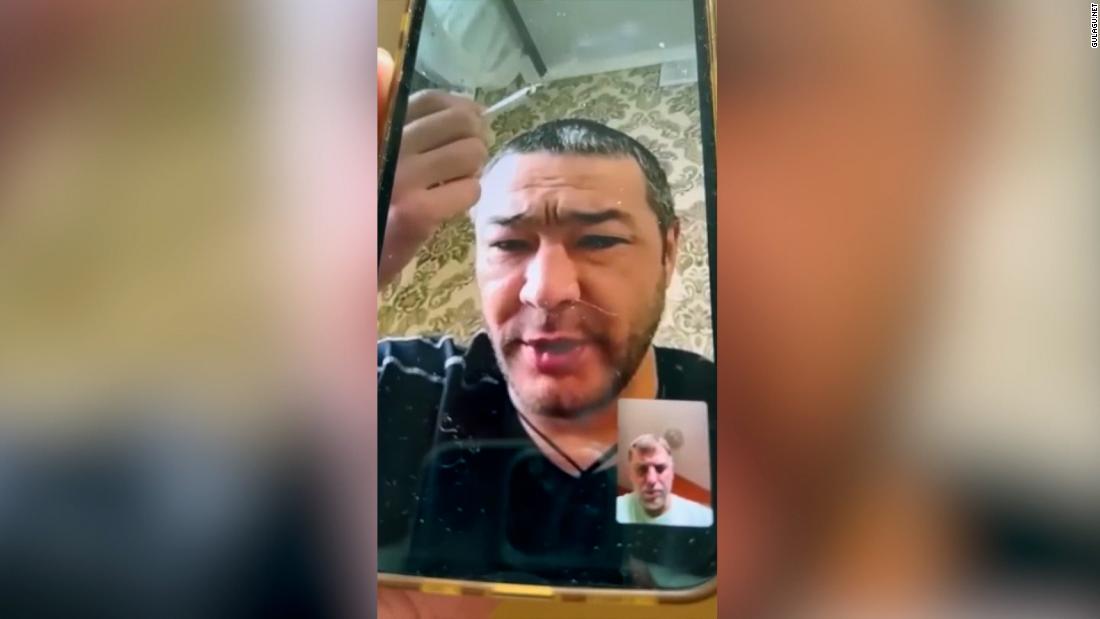For millions of Americans, Hurricane Helene has been a catastrophic and life-changing event. Since it first hit Florida on Sept. 26, at least 220 people have died and “hundreds are unaccounted for.” It will take months — perhaps years — for parts of Georgia, North Carolina, Tennessee, South Carolina and Virginia to recover.
Even now, many places remain cut off. Hundreds of thousands still have not had electricity restored. The New York Times says that Helene is “the deadliest storm to strike the U.S. mainland in nearly two decades.”
Traditionally, in the aftermath of disasters like this one, Americans and their leaders have put aside partisan differences and come together. Political scientists have dubbed this the “rally round the flag effect.” But, like many American traditions, this one already seems like a thing of the past.
In the short time since Helene hit, former President Trump and his allies have tried to turn the catastrophe to their political advantage. Their response exemplifies what some have called a “me first” approach to disasters.
The Biden administration sprang into action before the hurricane came ashore. It approved emergency requests for federal help from Florida, Georgia, North Carolina, South Carolina and Alabama.
By the end of last week, the Federal Emergency Management Agency reported that “(m)ore than 4,800 personnel from across the Federal workforce” were involved in managing the disaster. On Oct. 2, Biden announced that he was sending 1,000 active-duty troops "to assist with response and recovery efforts.”
Testimony to the quality of the president and his team’s response to Helene came from Republican political leaders across the Southeast, none of whom are fans of Biden. Like Biden, they put aside partisanship and hailed what the Democratic administration has done.
For example, Georgia Gov. Brian Kemp (R) noted that Biden had reached out to him and said, “‘Hey, what do you need?’ … He offered that if there’s other things we need, just to call him directly, which, I appreciate that. But we’ve had FEMA embedded with us since, you know, a day or two before the storm hit.”
Republican South Carolina Gov. Henry McMaster expressed similar sentiments last week. He said that the federal response Helene had “been superb,” explaining that the president and Transportation Secretary Pete Buttigieg told him they would provide “whatever the state needed.” McMaster noted, “we’re getting assistance, and we’re asking for everything we need.”
Finally, on Friday, the Washington Post quoted Sen. Thom Tillis (R-N.C.), who offered what the Post called “a robust defense of the federal recovery efforts so far.”
But you would never know any of this from what Trump has been saying. Sensing the possibility of securing a political advantage in swing states like Georgia and North Carolina, the ex-president has tried to stir up his usual brew of fear and resentment among those whose lives have been up ended.
Ignoring Kemp, McMaster, Tillis and other members of his party, on Thursday Trump insisted that “Kamala and Sleepy Joe are universally being given POOR GRADES for the way that they are handling the Hurricane, especially in North Carolina. It is going down as the WORST & MOST INCOMPETENTLY MANAGED ‘STORM,’ AT THE FEDERAL LEVEL, EVER SEEN BEFORE - BUT THEIR MANAGEMENT OF THE BORDER IS WORSE!”
As this statement suggests, Trump has treated Hurricane Helene as an opportunity to reap political gains on the topic of immigration.
Speaking at a rally in Michigan, Trump said, “If you want to see how sick and distorted Kamala Harris priorities are, just consider FEMA.…Kamala spent all her FEMA money, billions of dollars, on housing for illegal migrants, many of whom do not belong here at all, including one billion for gift cards for illegal aliens and putting them up in luxury hotels.”
This claim is demonstrably false. As the New York Times explains, “Funding for migrant shelters did not amount to ‘billions of dollars,’ nor did it deplete the coffers of the Federal Emergency Management Agency. And no disaster funding has been spent on those shelters.”
And when he hasn’t been fanning the flames of resentment against migrants, Trump has used Hurricane Helene to deepen the chasm between Republicans and Democrats. Before he went to North Carolina to see the aftermath of Helene, Trump posted the following on Truth Social: “I don’t like the reports that I’m getting about the Federal Government, and the Democrat Governor of the State, going out of their way to not help people in Republican areas.”
The Times notes that “there is no evidence that the Biden administration was purposefully ignoring the needs of Republican areas. In fact...FEMA has designated counties in several states — including dozens won by Mr. Trump in the 2020 presidential election — as eligible to apply for federal assistance.”
On Sept. 30, as he arrived in Georgia, Trump struck a different tone, and noted the American tradition of putting aside politics when disaster strikes. As he put it, “At a time like this, when a crisis hits, when our fellow citizens cry out in need. … We are not talking about politics.”
But it didn’t take long for the former president to try to score political points.
He used a news conference staged in a storm-damaged furniture store to claim, contrary to what Kemp had said, that the governor “has been calling the president but has not been able to get him.” And, again contradicting Kemp, former President Trump asserted that the federal response in that state has been “terrible.”
Trump also criticized Vice President Kamala Harris for not visiting Georgia. “Of course, the Vice President, she’s out some place campaigning...looking for money.”
Harris, who had cut short her campaign trip to consult with FEMA officials in Washington, traveled to Georgia on Oct. 2, and, unlike Trump, did not use her visit to criticize her opponent. Instead she announced that President Biden had “approved Georgia Gov. Brian Kemp's request for ‘100 percent federal reimbursement of local costs’...to get relief to people as quickly as possible.’"
Getting relief to people “as soon as possible” versus making false claims to garner political advantage marks stark differences in the way the two presidential candidates think about responding to disasters. Trump’s “me first” approach was also highlighted last week when Mark Harvey, who served on the staff of Trump’s National Security Council, claimed that in 2018, after deadly wildfires struck California, Trump initially refused to approve disaster aid for because of the state’s Democratic leanings.
According to Politico, “Trump changed his mind after Harvey pulled voting results to show him that heavily damaged Orange County, California, had more Trump supporters than the entire state of Iowa.”
When Americans go to the polls in November, they will have an opportunity to choose whether they want a president who will put aside politics when disaster strikes or one who will use disasters to help his supporters and punish those who are not.
Austin Sarat is the William Nelson Cromwell Professor of Jurisprudence and Political Science at Amherst College. His views do not necessarily reflect those of Amherst College.















 English (US) ·
English (US) ·